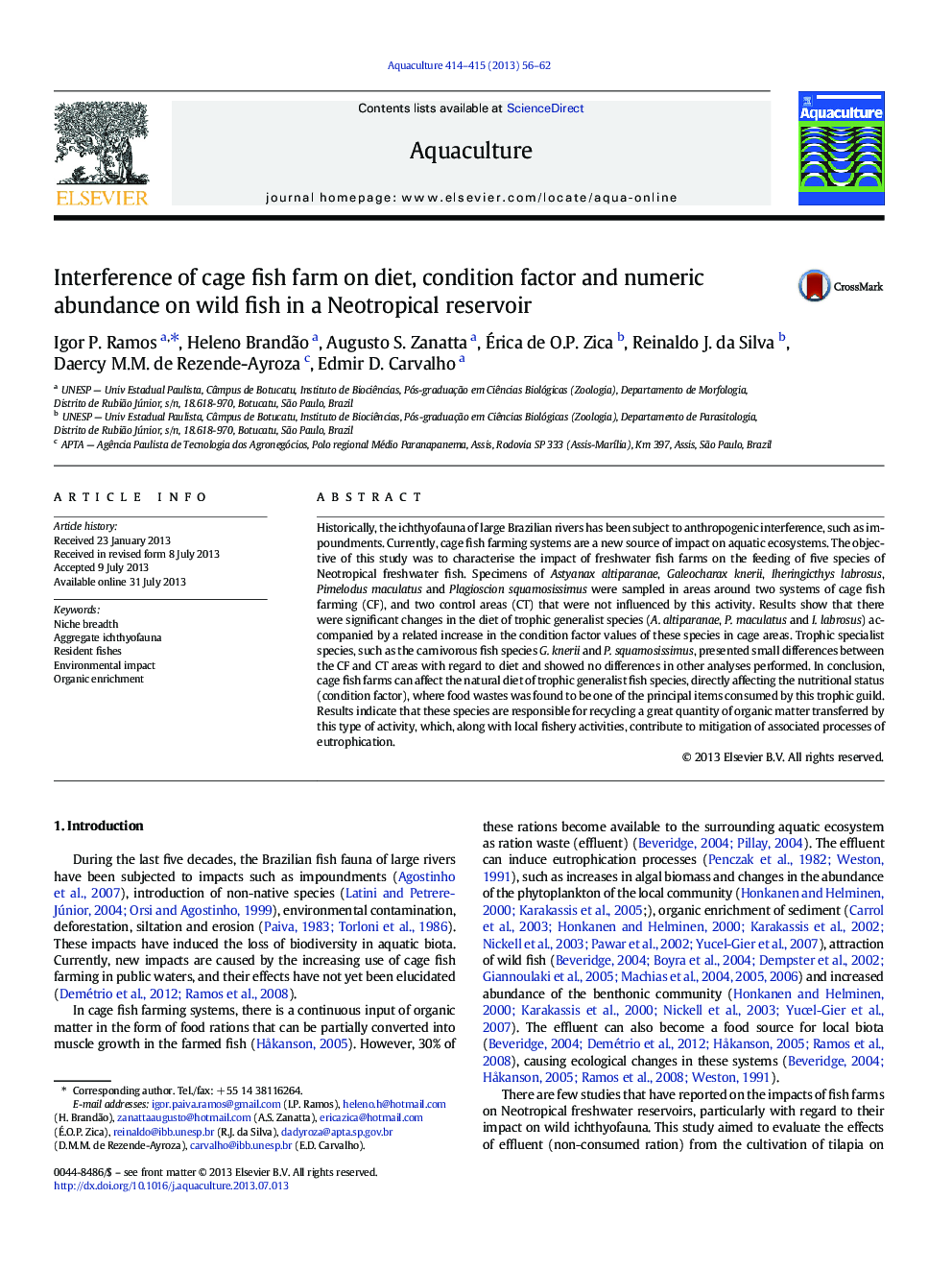| Article ID | Journal | Published Year | Pages | File Type |
|---|---|---|---|---|
| 8495444 | Aquaculture | 2013 | 7 Pages |
Abstract
Historically, the ichthyofauna of large Brazilian rivers has been subject to anthropogenic interference, such as impoundments. Currently, cage fish farming systems are a new source of impact on aquatic ecosystems. The objective of this study was to characterise the impact of freshwater fish farms on the feeding of five species of Neotropical freshwater fish. Specimens of Astyanax altiparanae, Galeocharax knerii, Iheringicthys labrosus, Pimelodus maculatus and Plagioscion squamosissimus were sampled in areas around two systems of cage fish farming (CF), and two control areas (CT) that were not influenced by this activity. Results show that there were significant changes in the diet of trophic generalist species (A. altiparanae, P. maculatus and I. labrosus) accompanied by a related increase in the condition factor values of these species in cage areas. Trophic specialist species, such as the carnivorous fish species G. knerii and P. squamosissimus, presented small differences between the CF and CT areas with regard to diet and showed no differences in other analyses performed. In conclusion, cage fish farms can affect the natural diet of trophic generalist fish species, directly affecting the nutritional status (condition factor), where food wastes was found to be one of the principal items consumed by this trophic guild. Results indicate that these species are responsible for recycling a great quantity of organic matter transferred by this type of activity, which, along with local fishery activities, contribute to mitigation of associated processes of eutrophication.
Related Topics
Life Sciences
Agricultural and Biological Sciences
Aquatic Science
Authors
Igor P. Ramos, Heleno Brandão, Augusto S. Zanatta, Ãrica de O.P. Zica, Reinaldo J. da Silva, Daercy M.M. de Rezende-Ayroza, Edmir D. Carvalho,
